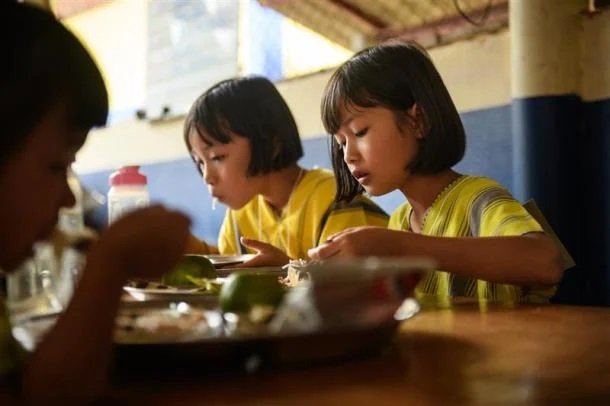
During the ‘Nutrition for Growth’ event hosted by France on March 27-28, 2025, UNESCO released a new report emphasizing the importance of meal quality in schools. Titled Education and Nutrition: Learn to Eat Well, the report urges governments to enhance the nutritional value of school meals worldwide. While nearly half of primary school pupils receive meals, concerns remain about their nutritional adequacy. The report highlights the need for balanced meals and food education to support children’s health and learning.
Current Global Context
As of 2024, around 47% of primary school pupils globally benefitted from school meal programs. However, UNESCO stresses that the nutritional quality of these meals is often inadequate. Malnourishment in children remains a challenge, and enhancing meal quality can lead to better academic performance and school attendance.
Key Findings of the UNESCO Report
The report presents concerning statistics on school meal programs:
- In 2022, 27% of school meals worldwide were not designed with input from nutritionists.
- Only 93 out of 187 countries had legislation regulating school food.
- Just 65% of these countries had standards for food sold in school cafeterias and vending machines.
Health Implications
UNESCO raises concerns over rising childhood obesity and food insecurity. Since 1990, childhood obesity rates have more than doubled, while many children still suffer from malnutrition. Schools play a crucial role in shaping eating habits, yet many offer unhealthy food options. The report advocates for a transition to fresh, locally sourced food and stricter nutritional guidelines.
Successful Initiatives Worldwide
Several countries have implemented effective school meal programs to improve nutrition:
- Brazil has limited ultra-processed foods in its national school feeding program.
- China has introduced dairy and vegetables in rural schools to enhance nutrient intake.
- Nigeria’s Home-Grown School Feeding Programme has led to a 20% increase in primary school enrolment.
- India’s Maharashtra initiative introduced fortified organic pearl millet, improving adolescents’ cognitive functions.
Recommendations and Future Actions
UNESCO calls on governments and education stakeholders to:
- Prioritize fresh, unprocessed foods in school meals.
- Reduce sugar and ultra-processed foods in school cafeterias.
- Integrate food education into school curricula to promote healthy eating habits.
- Develop training programs for policymakers to effectively incorporate nutrition into education systems.
A Path Forward
With its latest report, UNESCO underscores the urgent need for policy reforms to enhance school meal programs. By integrating nutritional standards, education, and sustainable practices, schools can play a pivotal role in improving children’s health and academic success worldwide.

